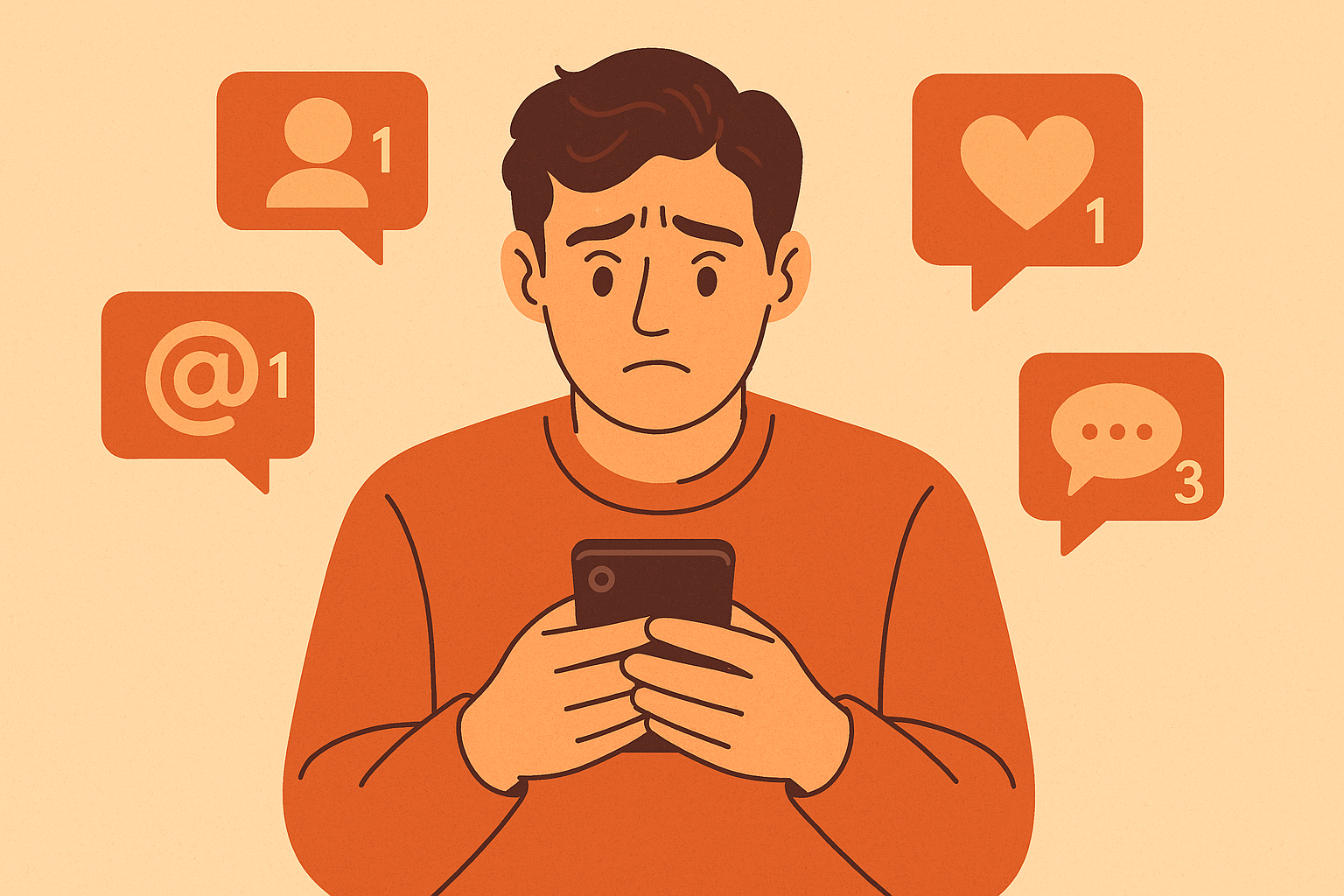and the distribution of digital products.
DM Television
How Our Attention Became the Most Hacked Software of All Time
You don't scroll TikTok for five minutes. You scroll until the part of your brain that wants to scroll finally loses to the part that feels ashamed. That moment of clarity, when you look up and realize an hour has disappeared, that's not distraction. That's extraction. And it's not your fault.
\

Modern technology doesn't just compete for your attention. It studies it, maps it, and rewrites it. Notifications, infinite scroll, and autoplay are not just features. They are traps. Our attention, once an intimate and voluntary act of focus, is now treated like a bug-ridden app that is open to manipulation, patching, and hijacking.
The Rise of Attention EngineeringAttention wasn't always this programmable. In the analog world, distractions were loud but optional, like the television in the corner, the billboard at the junction. You could look away. But then came apps designed not just to attract attention, but to hold it hostage.
\ The shift happened slowly. At first, we welcomed notifications. They were helpful reminders. Then we allowed social media to tell us who liked what we posted. Then came the feed: a never-ending scroll of content that is programmed just enough to make us keep swiping. What started as product design became persuasive design. And persuasive design eventually morphed into behavioral engineering.
\ Every interaction you have online today is built on a feedback loop. Your reaction is tracked, analyzed, and used to make the next dopamine hit just a little stronger. You're not browsing. You're being conditioned.
The Mechanics of the HackLet's break it down.
- Notifications exploit your need for social approval.
- Autoplay removes your chance to pause and exit.
- Infinite scroll creates the illusion of choice while trapping you in a loop.
- Algorithmic feeds learn your patterns, your preferences, your triggers, and weaponize them.
These aren't bugs. They are features. Each one exploits deeply human psychological tendencies of reward anticipation, Fear of Missing Out, social comparison, and even learned helplessness. The more distracted you are, the more money someone else or a corporation makes.
\ It's no wonder ex-employees of major tech companies have confessed that many apps were designed to be addictive. And when tech insiders start using grayscale mode, dumb phones, or screen blockers to defend their focus, maybe we should ask: What exactly have we given up in exchange for "free" apps?
\
What We Lose When We Lose Our AttentionWe've underestimated how much of our identity is tied to attention. Focus is not just about productivity; it's about who you are when no one is pulling at you. When your mind is quiet, what surfaces? When you're not reacting, what do you think about? Now imagine you rarely reach that state anymore.
The consequences are creeping in everywhere:
- Shallow work becomes the norm.
- Memory degrades because we never reflect.
- Creativity weakens since nothing new grows in a constantly interrupted mind.
- Mental health suffers because anxiety thrives in environments without closure.
\ The real danger is subtle: you become a reactor, not a thinker. You let the feed decide what you care about. You outsource your curiosity, your choices, and your time. And over time, you lose the ability to know what truly matters to you.
Our Attention Has an Operating SystemIf you think of attention as software, then you're walking around with an unpatched system. It's open-source to every app on your phone. No firewalls. No updates. No awareness. And yet, like any software, attention can be debugged. Rewritten. Secured. But it starts with awareness of how you're being hacked and what you can do about it.
\ Here's what most people never realize: the battle for your attention is mostly won before you even open your phone. The way you set up your environment, your notifications, your habits, that's your codebase. And most of us are running default settings installed by corporations.
Reclaiming Your Mental Operating SystemThere's no one fix. But here are shifts that matter:
- Delete triggers: Remove apps you don't trust with your attention.
- Turn off notifications: All of them. Especially badges and banners.
- Greyscale your phone: It's ugly enough to break the reward loop.
- Build friction: Make the things you want to avoid harder to access.
- Digital fasting: 24 hours without stimulation resets your brain more than you think.
- Protect the first hour of your day: No inputs, no feed. Just quiet.
You don't need to go off-grid or live in a cabin. You just need to stop giving your attention away without asking what it costs.
The War Isn't Over But You Can opt OutThe next big tech revolution won't be about speed, automation, or even intelligence. It will be about consciousness. The ability to guard your mind in a world built to invade it. You don't have to be perfect. You just have to be aware. You have to realize that your time is not the most valuable thing you own, but your uninterrupted time is.
And every moment you protect it, you're not just breaking an addiction, you're reclaiming the part of yourself that isn't for sale. Remember that the feed will always scroll. The notifications will always ping. But you get to decide what you focus on. And in that choice, every single time, is your power.
- Home
- About Us
- Write For Us / Submit Content
- Advertising And Affiliates
- Feeds And Syndication
- Contact Us
- Login
- Privacy
All Rights Reserved. Copyright , Central Coast Communications, Inc.